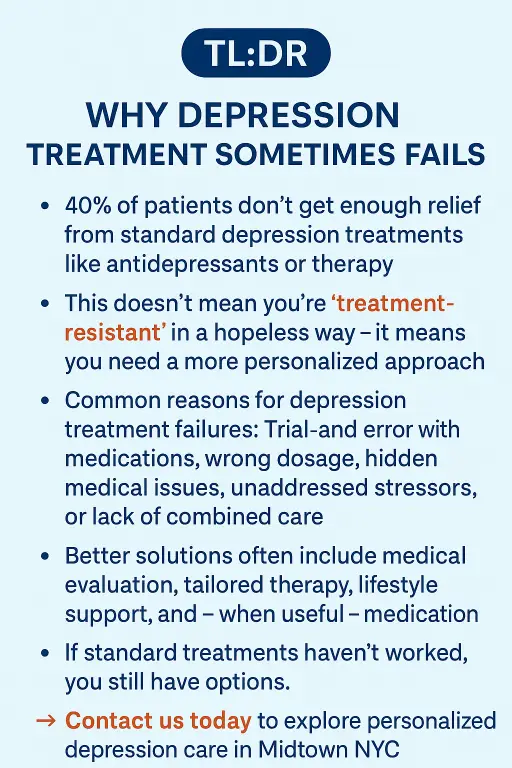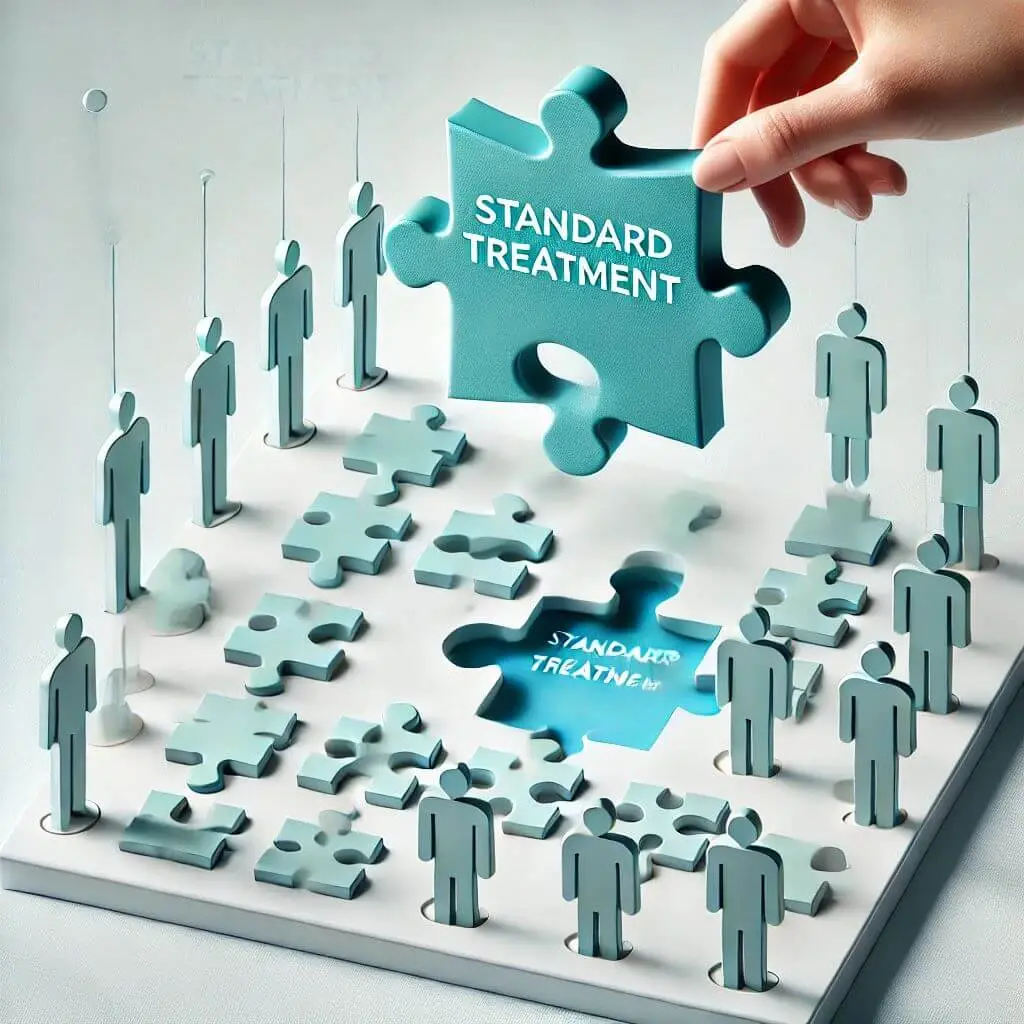Why Depression Treatment Fails 40% of Patients?
Depression treatment failures affect nearly half of all people seeking help. Despite taking antidepressants, going to therapy, and following your doctor’s advice, you might still feel stuck. If you’re dealing with treatment-resistant depression (TRD) or failed depression therapy, you’re not alone—and it’s not your fault.
After treating over 1,000 patients in 15 years, I’ve learned something important: when depression treatment doesn’t work, it’s usually not because you’re “unfixable.” It’s because you need a different approach.
Why Finding the Right Treatment Isn’t Like Solving a Math Problem
Here’s something your doctor might not have explained: psychiatric medication isn’t an exact science like math or physics. We can’t plug your symptoms into a formula and get the perfect answer.
Your brain chemistry is unique. What works for your friend, your coworker, or even your family member might not work for you. This means finding the right treatment often involves:
- Trial and adjustment: Testing different medications to see what helps
- Dosage fine-tuning: Starting low and adjusting until you find what works
- Switching approaches: Sometimes the first (or second, or third) medication isn’t the one
- Combining treatments: Medication plus therapy often works better than either alone
This process can feel frustrating, but it’s normal. You’re not doing anything wrong if it takes time to find what helps you.


The Real Reason Standard Treatment Doesn’t Always Work
Most depression treatment follows the same pattern for everyone: diagnose symptoms, prescribe antidepressants, recommend therapy. It helps about 60% of people. But what about everyone else?
I’ve noticed that people whose depression doesn’t respond to standard treatment often have something else going on:
Young adults dealing with career pressure and perfectionism need different help than someone going through a divorce. Older adults facing health changes and loss need different support than someone with work stress.
Same depression symptoms, completely different root causes.
What Real Recovery Looks Like
Effective depression treatment addresses your whole situation, not just your symptoms. This might include:
Medical evaluation: Checking for thyroid problems, vitamin deficiencies, or other health issues that can cause depression
The right therapy approach: Anxiety management for perfectionists, grief counseling for loss, or life transition support for major changes
Medication when it helps: Sometimes antidepressants are crucial, sometimes they’re not the main solution
Lifestyle support: Sleep, exercise, nutrition, and social connection all affect your mood

Signs You Need a Different Approach
Consider asking your doctor about other options if:
- You’ve tried 2-3 medications without much improvement
- Therapy helps temporarily but problems keep coming back
- You feel like you’re “doing everything right” but still struggling
- Your depression seems connected to specific life situations
- You function well at work but feel miserable inside
You Have More Options Than You Think
If standard treatment hasn’t worked for you, don’t give up. Depression affects everyone differently, and treatment needs to match your specific situation.
Different types of therapy exist for different problems. Various medications work through different pathways in your brain. Integrative approaches combine medical care with counseling and lifestyle changes.
The key is finding providers who understand that cookie-cutter treatment doesn’t work for everyone.
What’s Next for You
Remember: needing to try different treatments doesn’t mean you’re treatment-resistant. It means you’re human, with a unique brain and unique circumstances.
Disclaimer: This article is for educational purposes only and is not a substitute for professional medical advice, diagnosis, or treatment. If you are experiencing severe depression or thoughts of self-harm, call 988 in the U.S. or go to your nearest emergency room. Always seek the advice of your physician or qualified mental health provider with any questions you may have regarding your condition.
Disclaimer:
The information provided in this guide is for educational purposes only and should not be considered a substitute for professional medical advice, diagnosis, or treatment. Consult with your psychiatrist regarding any specific medication management concerns or questions you may have. Each individual’s situation is unique, and your doctor can provide personalized recommendations based on a comprehensive evaluation of your medical history, symptoms, and needs. Always follow the guidance and instructions provided by your psychiatrist regarding medication management.

